Plants, pollinators, and pests—that sums up Ag Biotech Graduate Academy 2023! 18 Ohio educators gathered at Otterbein University for some intense learning and sweet labs! The biotech focus was on insects that impact Ohio agriculture.
Did you know that in 2021, OH produced over one million pounds of honey? That was possible thanks to pollinators! Global Impact STEM Academy teacher and GNG teacher leader Rachel Sanders led a variety of labs exploring these sticky topics:
- investigating the sterility of raw honey
- extracting pollen from honey to consider location and plants present in pollination
- staining and counting pollen in forensic palynology
- evaluating honey’s sensory and chemical properties
- checking for honey adulteration or spoilage
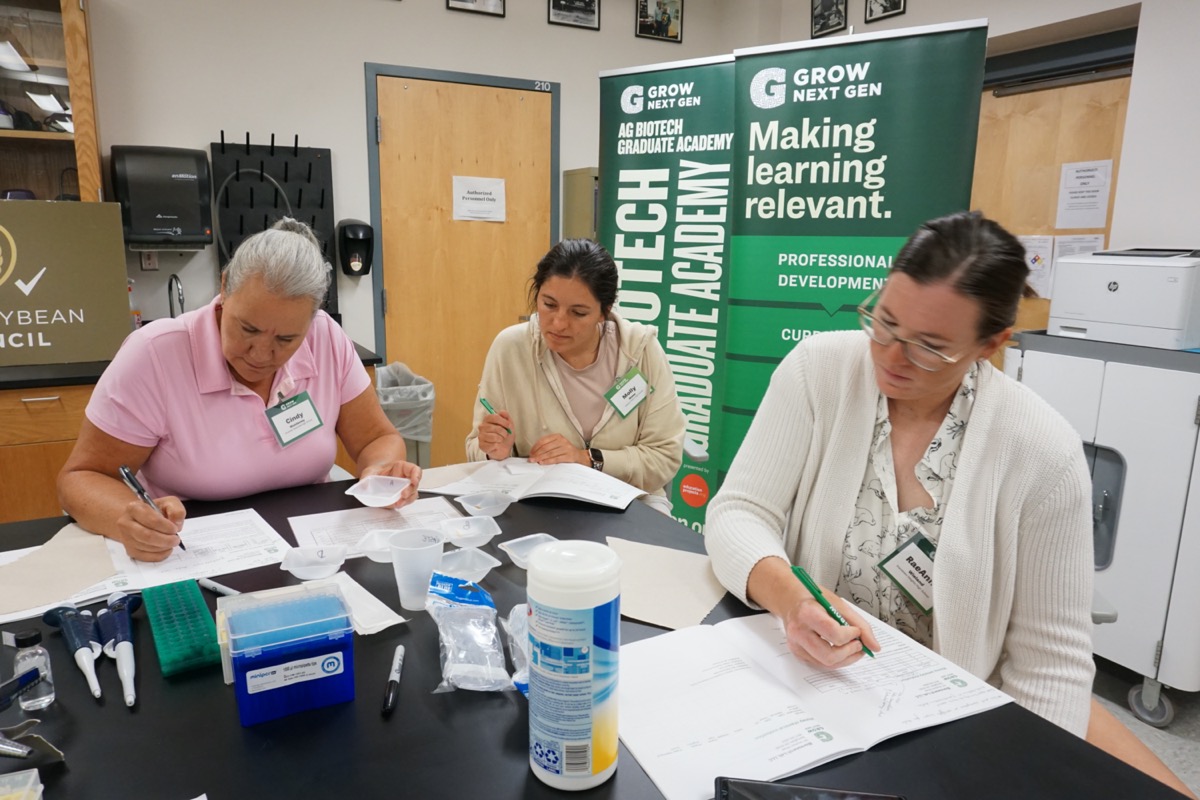
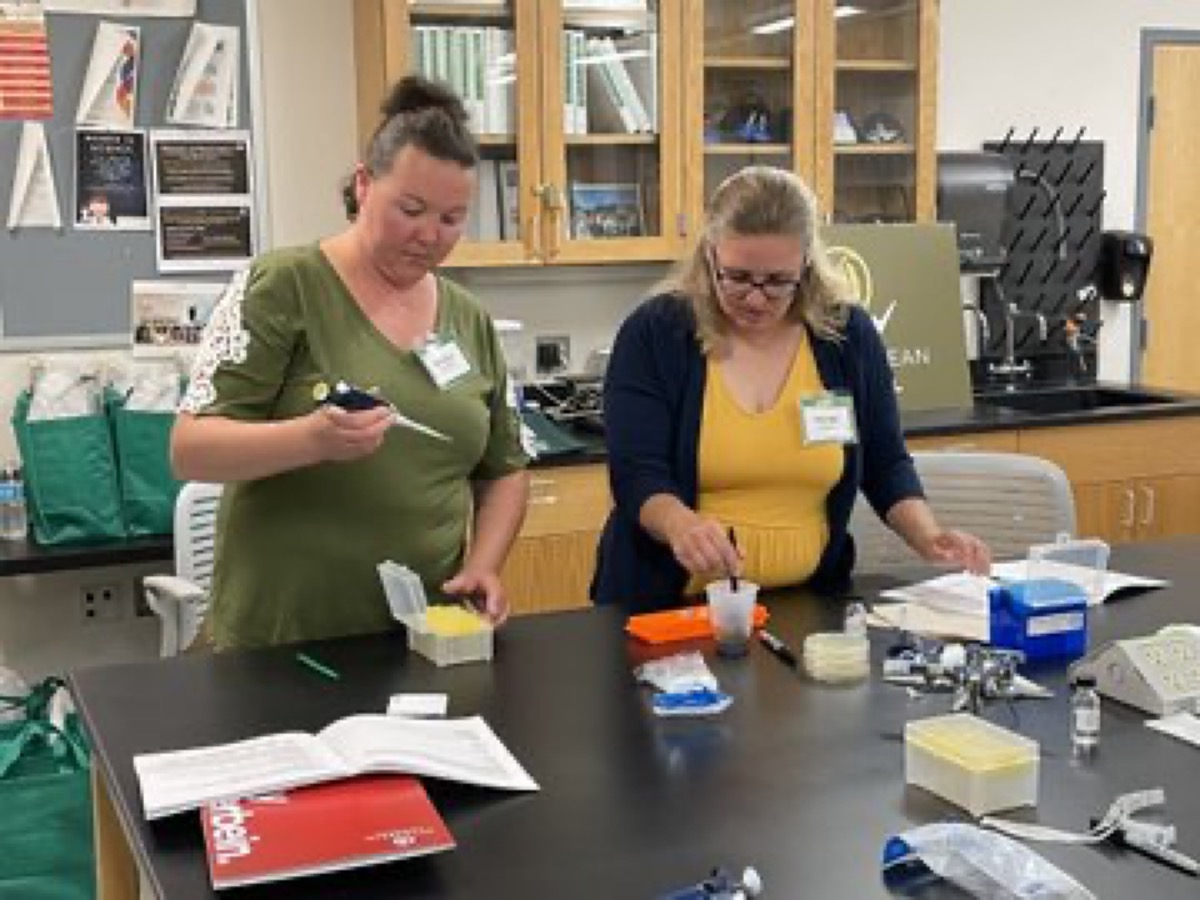
National Agricultural Genotyping Center (NAGC) research scientist and GNG industry leader Zack Bateson took teachers outside to observe pollinators and compare how many were on different plants. Bateson also showed how to use bioinformatics to
- analyze the DNA of honey and identify which plants the bees visited
- compare DNA sequences of viruses affecting colony collapse
- identify insects damaging soybean plants using DNA analysis

Postdoctoral Researcher in the Department of Entomology at The Ohio State University and GNG industry leader Maggie Lewis led an aphid population simulation activity.
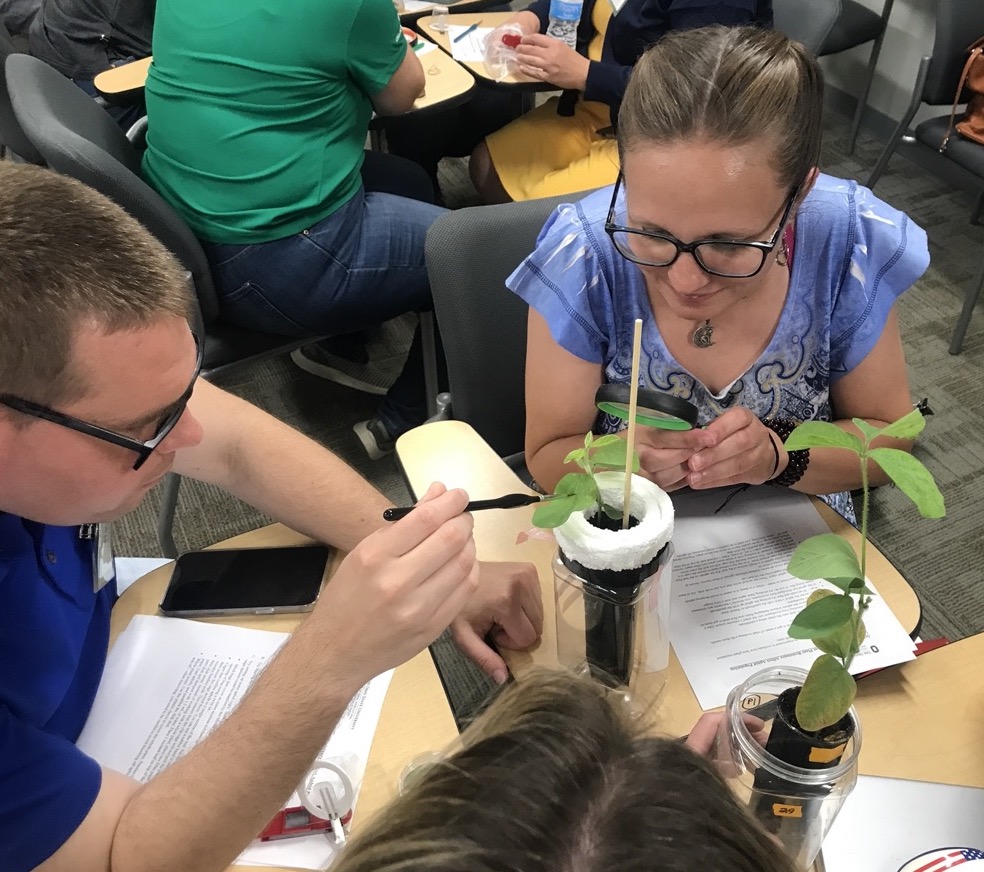
The workshop wrapped up with a challenge: Which flower characteristics attract pollinators or repel pests? Participants used an array of craft materials to create a model plant, name it, and then explained its characteristics.

Christina Della Rocco teaches biology, forensic science, and microbiology at Buckeye Valley High School. “I like being able to do the hands-on lessons and ask questions so I feel comfortable and can take them back to my classroom. I want to use the Bioinformatics piece to talk about phylogenetic trees. For my microbiology class, I’d like to create an epidemic scenario for them to research and identify the bacteria causing it through the DNA involved.”
We’d love to have you join us at a future GrowNextGen workshop! Watch our events page.
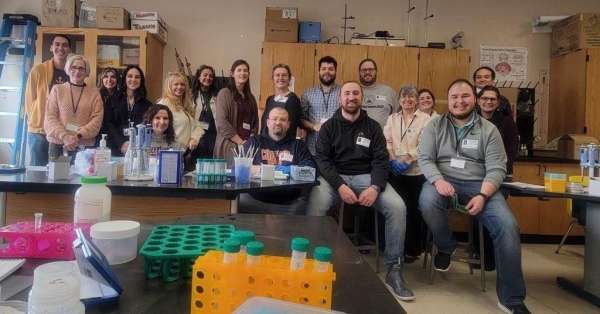
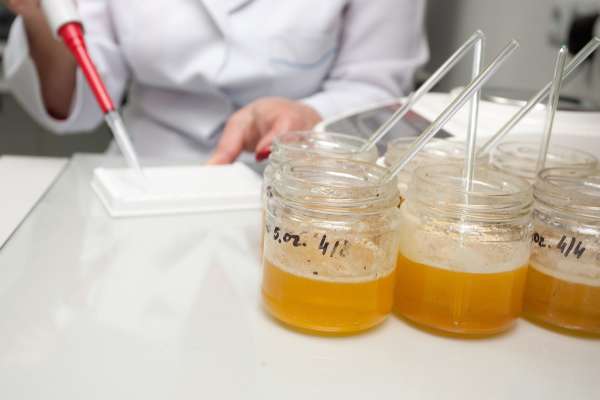
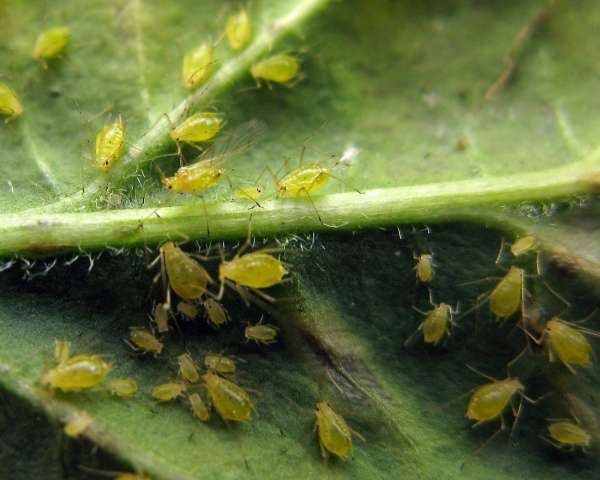
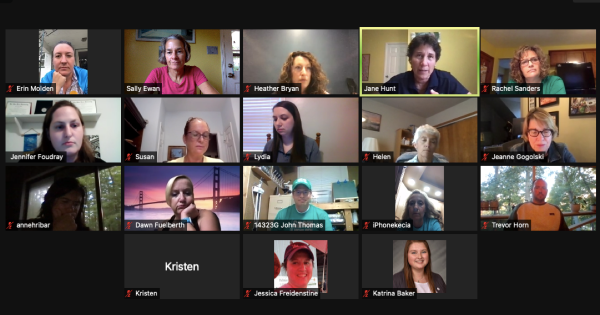
Share this